Not every industry is a suit-and-tie industry!
Trying to look like a top exec when you’re a skilled programmer is
likely to cause people looking for programmers to pass you by — thinking
that you’re a hiring manager rather than a worker!
So as you prepare for your conference or trade show, be
thinking about your goals and the situation you’re going to be going into. Focus on four basic fundamentals:
- Industry and Type of Conference
- City and Country
- Climate and Activity Schedule
- Your Position and Goals
 Industry and Type of Conference
Industry and Type of Conference
Think of your industry in broad strokes: is it conservative? Trendy? Way out on the exotic fringe?
You want to fit into at least the
broadest possible
characterization you can think of. No matter how sharply turned-out it
makes you look, a suit and tie is going to look out of place at most
gardening and landscaping seminars or dog training exhibitions. Give a
nod to reality before pulling out all the stops on your wardrobe.
The type of conference you’re attending is also relevant — a half-day
seminar followed by a dinner event means social dress, while several
full days of panels and talks would call for a more formal business
standard of dress. Neckties up until dinner is a good rule of thumb in
most business climates, while evening outfits should be a little more
relaxed.
City and Country
While the conference guests set much of the tone, it’s worth
remembering that every hotel or convention center is a product of its
environment. The staff and the other guests will play a part in how you
look as part of the crowd.
American settings are,
generally speaking, less formal than equivalent events in Western
European or South Asian countries, although large cities are an
exception. Within America you can safely expect New York and the east coast in general to be the most fashion-conscious sites. Since
everyone
there will be well-dressed, it behooves you to wear your business
attire plus a touch or two of fashion — a pocket square or an
interesting cut of coat, say.
Large convention centers in other American cities tend to be by and
large indistinguishable, in terms of fashion environment. Dress neatly
and well within the boundaries of your profession and try to avoid
seeming too much of a dandy. Good style is already eye-catching — you
don’t need to be ostentatious on top of it, particularly in Middle
America (I love you Iowa).

Be prepared to meet outside - even if you're deciding the fate of the free world.
Climate and Activity Schedule
Your basic hotel setting is
climate-controlled — sort of a no-brainer. Long sleeves and a jacket
will usually be fine, though the jacket may need to be light,
particularly in the winter when indoor temperatures are raised.
If the conference moves beyond the hotel, however, or takes place at a compound of multiple buildings,
be sure to take exterior temperatures into account.
A good suit loses its appeal very quickly when the wearer is sweating
and flushed. Even if 98% of your time is spent in a hotel you’ll need
to prepare differently for Las Vegas in June than you would for Boston
in February.
How active you plan on being is also extremely relevant — some
clothes are comfortable to sit in for hours and others are very
definitely not. Your conference clothes should always fit well enough
that you can both move from place to place briskly in them and sit for
several hours if needed.
If the schedule includes multiple events over a long day, a change of
underclothes or even shirt and jacket may be worth bringing. A quick
change of undershirt at a convenient lunch break doesn’t seem like it
would make any visible difference, but you’d be surprised how much
better a man who can sit comfortably looks that someone who’s fidgeting
with his clothes.

Can you spot the lost tourist? What about the busy business exec?
Your Position and Goals
The key question in all of this:
what are you trying to accomplish at the conference?
Most people will usually fall into one of two basic categories: shopping for people or selling themselves.
Broad terms, but they’re basically applicable whether you’re interested
in hiring workers, landing a job, or just building useful contacts that
can help you achieve long-term goals.
Dress to represent yourself as what you need: an employer, a
potential employee, or just a savvy figure in your industry. Hiring
managers may want more of a “power” look with navy blazers and bright
ties, job-seekers will need to look traditional and respectable in
conservative colors and patterns, and self-promoting experts can always
use a few original touches in their outfit.
The key to remember here is that
all of these people are
always, always, always selling themselves. Even a well-placed man who
likes where he is in life can always benefit from looking like the right
guy to talk to.

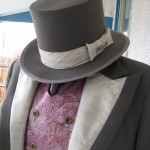
 This means that we mail you a mock-up of the pieces sewn in cotton so
that you can try them on before we make the final garments.
This means that we mail you a mock-up of the pieces sewn in cotton so
that you can try them on before we make the final garments.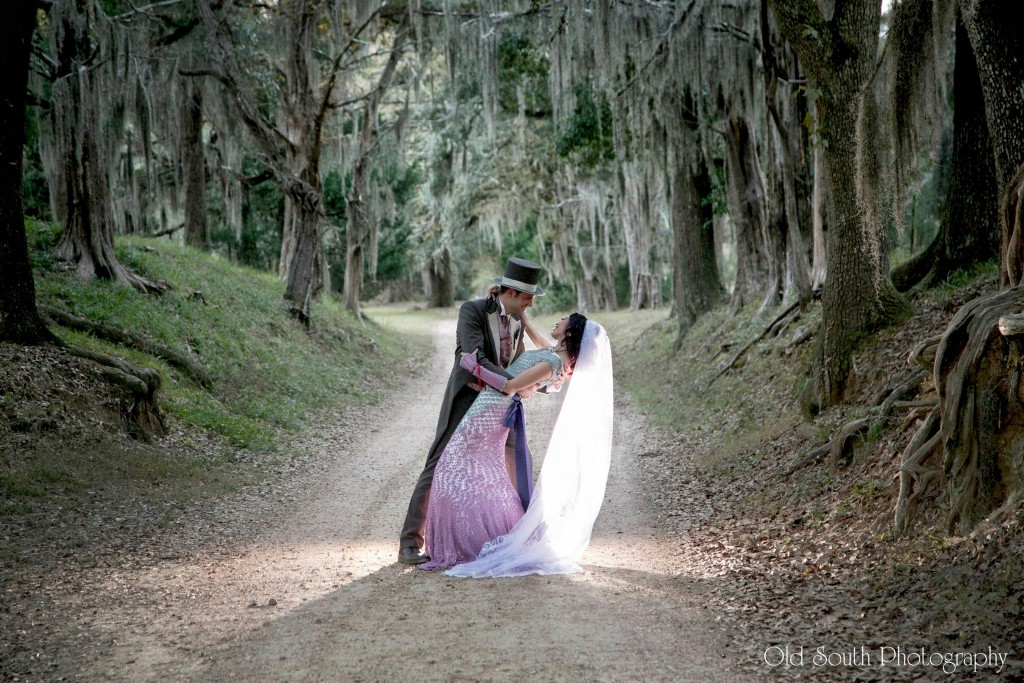
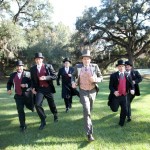 The pictures of the elephant grey tailcoat show a complete outfit that we made.
The pictures of the elephant grey tailcoat show a complete outfit that we made. 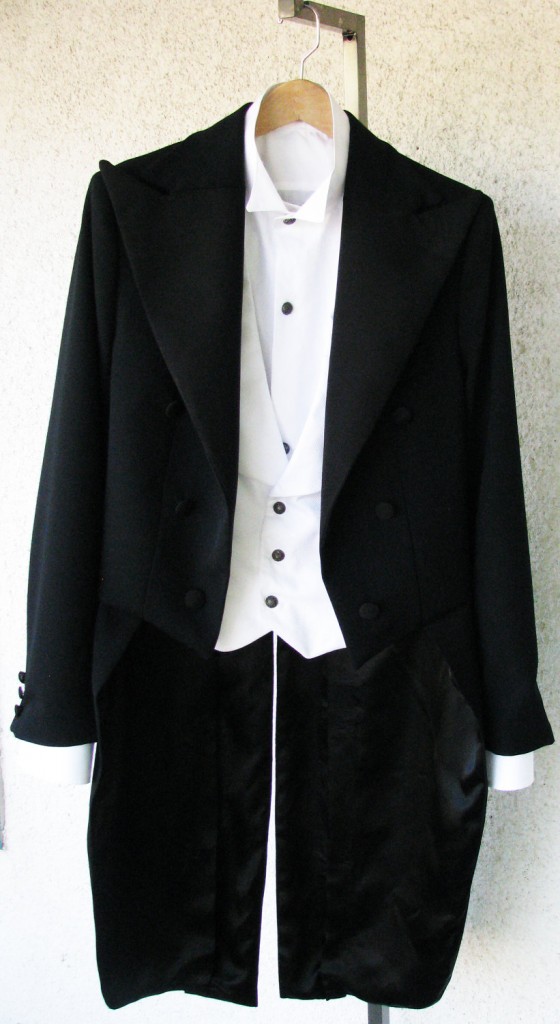
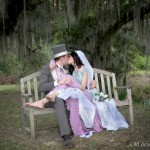 The
vest is double-breasted and made from a silk brocade to coordinate with
the wedding dress and the hat is a completely handsewn wool and silk
buckram and wire frame piece that we made.
The
vest is double-breasted and made from a silk brocade to coordinate with
the wedding dress and the hat is a completely handsewn wool and silk
buckram and wire frame piece that we made. Each piece is uniquely designed and individually made-to-measure.
Each piece is uniquely designed and individually made-to-measure. 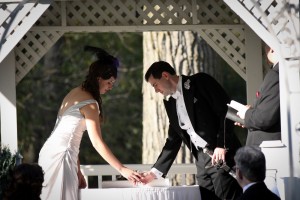
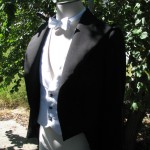 The pants are made without a front crease for a slim Victorian look.
The pants are made without a front crease for a slim Victorian look.
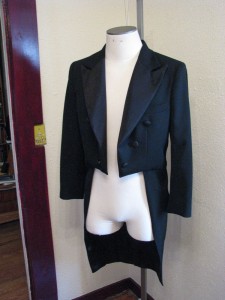
 One was made for a 1930s style wedding.
One was made for a 1930s style wedding.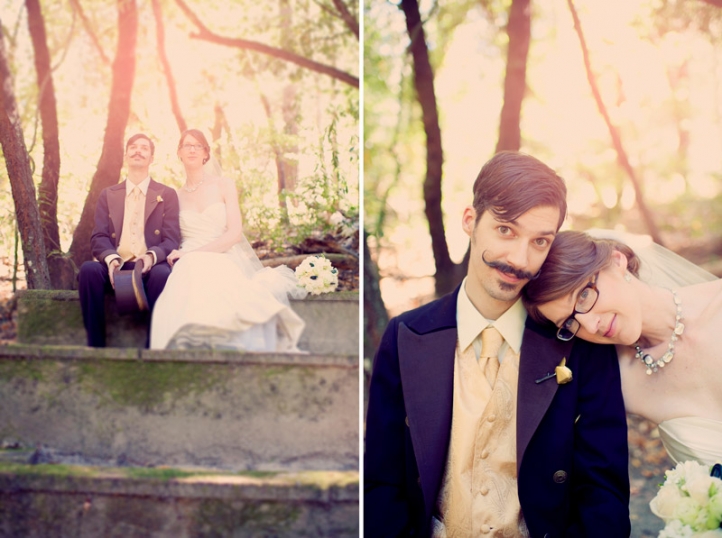 The
other black tailcoat has smaller peak lapels, also made from silk
grosgrain, and a straight cut hem for a look that is both Edwardian and
very modern.
The
other black tailcoat has smaller peak lapels, also made from silk
grosgrain, and a straight cut hem for a look that is both Edwardian and
very modern.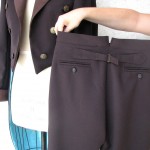
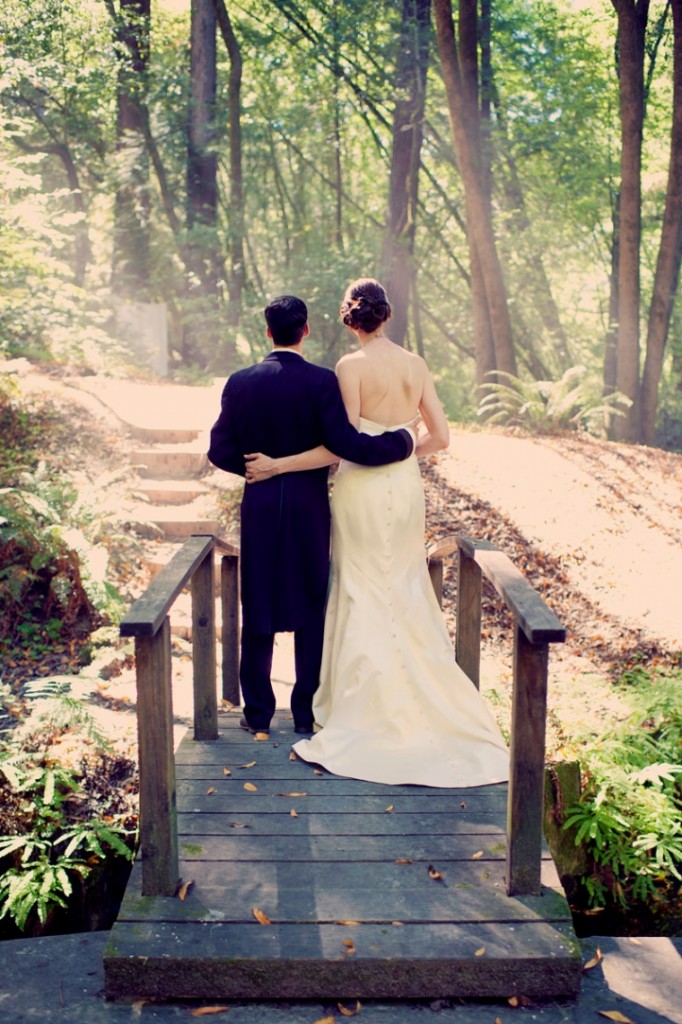 The pants are in a Victorian style with a fishtail and back belt.
The pants are in a Victorian style with a fishtail and back belt. It is cut from a gorgeous wool flannel and shown with a matching Wellington style top hat.
It is cut from a gorgeous wool flannel and shown with a matching Wellington style top hat.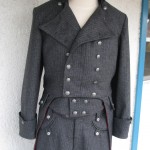
 We can do many types of military tailcoats.
We can do many types of military tailcoats.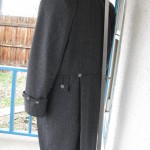
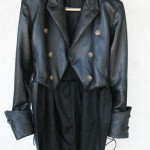 If
you are thinking about ordering a tailcoat or complete ensemble, just
contact us (aj@denverbespoke.com) so that we can talk about your project
and start getting together fabrics to mail to you.
If
you are thinking about ordering a tailcoat or complete ensemble, just
contact us (aj@denverbespoke.com) so that we can talk about your project
and start getting together fabrics to mail to you.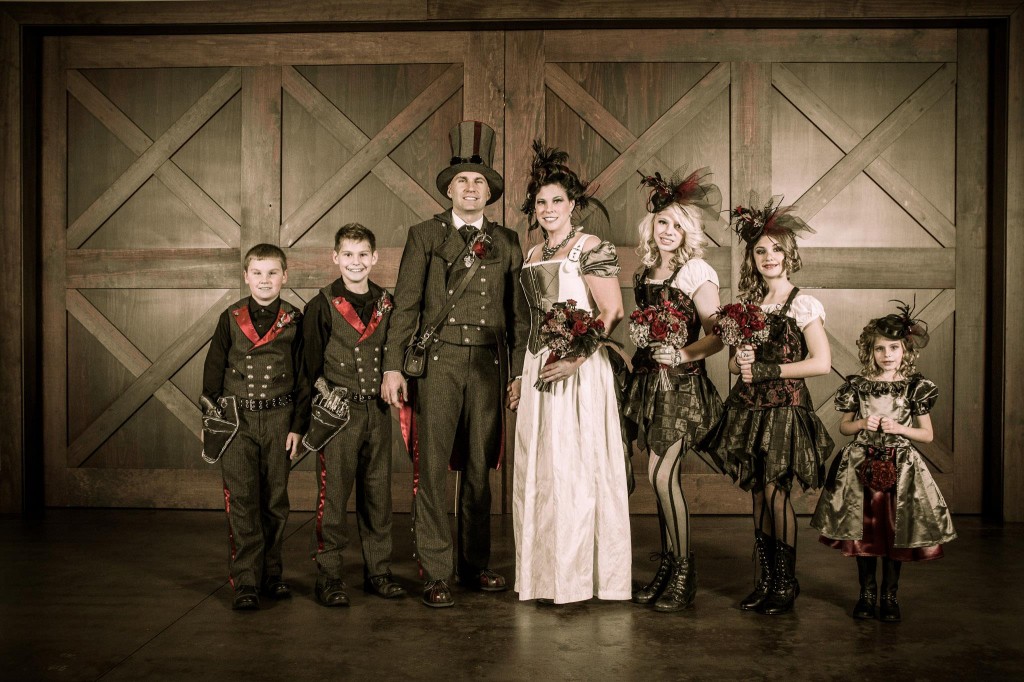
















 Today
– much of the world does a fair amount of their shopping via the web.
In fact, I estimate that I buy the majority of all my needs online (not
counting groceries….yet).
Today
– much of the world does a fair amount of their shopping via the web.
In fact, I estimate that I buy the majority of all my needs online (not
counting groceries….yet).